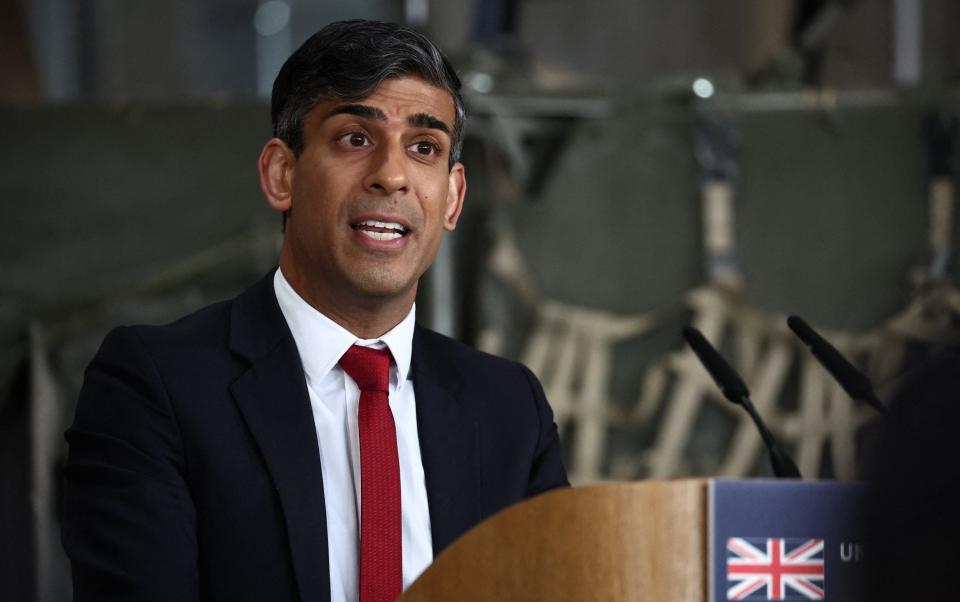Sunak to water down kids smartphone rules after industry backlash

Rishi Sunak is under pressure to rethink a radical crackdown on smartphone and social media use by children after a backlash from the technology industry.
Senior telecoms executives have hit out at plans to block under-16s from buying smartphones, which they claim are “not practical or logical in any way”.
Technology companies have already engaged in preliminary talks with Government officials about their plans, which revolve around restrictions on mobile use.
This is in response to concerns that they are distracting children in schools and fuelling a mental health crisis.
Downing Street and the Department for Science, Innovation and Technology are currently crafting a consultation to ask parents and businesses what restrictions they would like to see on phone use.
The consultation is expected to include questions about a potential ban on the sale of phones to under-16s and the need for parental approval when teenagers download social media apps such as Facebook and Instagram.
However, other more stringent proposals that were expected to feature in the consultation are now expected to be removed following pushback from the tech sector.
One suggestion by government officials was a possible digital alert for parents if their children searched for dangerous or disturbing content on their phones.
This policy idea had been supported by Esther Ghey, whose teenage daughter Brianna was murdered by two other teens who had watched illegal and violent videos online.
She previously said such an alert system would make parents “aware of any concerning things that children are looking at”.
However, US tech giants are understood to have baulked at the privacy implications for children.
This is due to issues around who could set relevant search terms, as well as potential concerns over how the measure could be used to discriminate against children who may not want parents to know about their sexuality.
One industry source said: “It was seen as a massive invasion of privacy.”
Many in the tech sector believe the proposal will almost certainly be dropped from the consultation but a Government source warned that no final decision had been made on the contents of the paper.
A Whitehall insider said: “It is important that we take the time to get this right but it is complete nonsense to suggest we will shy away from ruffling the feathers of Big Tech when it comes to keeping our kids safe.”
Despite the pushback, figures published by technology regulator Ofcom earlier this month reveal the widespread use of social media and phones by teenagers and young children.
In a report, Ofcom said: “Given the 13+ minimum age requirement on most of these social media platforms, it is notable that half (51pc) of children under 13 use them.”
While some reports had suggested the consultation could come as soon as this month, The Telegraph understands it is still several weeks away from being finalised.
Separately, the telecoms industry is concerned about the logistical hurdles that a ban on phone sales for under-16s could impose on them, particularly regarding extra checks at the point of sale.
A technology industry executive attacked the crackdown plans, claiming it is a “knee-jerk reaction” that “raises countless questions”.
A Government spokesman said: “We do not comment on speculation. Our commitment to making the UK the safest place to be a child online is unwavering, as evidenced by our landmark online safety act.”

 Yahoo Finance
Yahoo Finance 